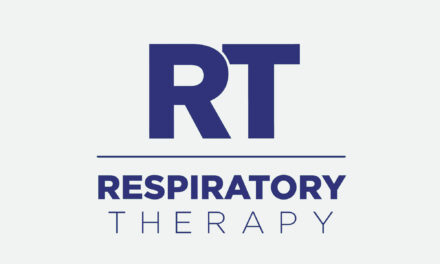COPD-ALERT, a 24/7 online support group, offers friendship and science.

Add to that the guilt that patients who were smokers often feel and the depression that can accompany loss of health, and it is easy to see how an Internet support group can quickly become indispensable. Currently, there are approximately six online support groups for COPD patients. One of those groups, COPD-ALERT, is particularly popular with information seekers, although friendship is an important offshoot of membership.
COPD-ALERT member Carolyn Hull of West Palm Beach, Fla, was diagnosed with emphysema in 1993. “There was virtually nothing on the Internet then,” says Hull, but she soon found companionship using the now defunct Prodigy Classic’s medical support bulletin board for respiratory problems. Later, she found online groups specific to COPD. Hull has been a member of COPD-ALERT for a little more than 2 years and is also a member of the Yoyo Sisterhood, a subgroup of five women from Vermont, Alabama, Virginia, and Florida, who met online and have deepened their relationships through COPD-ALERT.
“The COPD patient has found a lifeline in support groups,” says Hull. “We learn from each other and we share ideas. We discuss how we feel and we have fun.” Support groups help members stay abreast of medications, new techniques, and medical breakthroughs. “The friendship means a lot to me, too,” she says. “We don’t get out to socialize like we would if we didn’t have oxygen and breathing problems.” Beside being a social venue, the group members also turn to each other first when faced with a problem.
For instance, Hull recently posted a question on the COPD-ALERT bulletin board, asking if anyone had any advice on how she could convince her cat Angel to stop chewing on her oxygen tubing. Someone suggested she put lemon on the tubing, so Hull coated the tubing with lemon furniture polish and Angel hasn’t touched it since.
Becoming Informed
While practical tips and emotional support account for much of what the group has to offer, scientific information is also readily shared. In fact, the group has a dozen or so members who are part of the scientific community. Some are COPD patients themselves, while others work in the field.
Joseph Barnard, PhD, a scientist in a pulmonary research laboratory at Baltimore’s Johns Hopkins University School of Medicine, has been with the group almost since its inception in July 2000. Barnard joined COPD-ALERT when he was the senior scientist at Otsuka Maryland Research Institute, in Rockville, Md, a privately held Japanese pharmaceutical company. At the time, Barnard was assigned to do efficacy studies on the company’s COPD compound.
With a background in acute, not chronic, lung problems, Barnard wanted to see through the eyes of someone with the disease. “I wanted to know what their life was like,” he says. After extensive discussions with Vlady Rozenbaum, COPD-ALERT’s founder, Barnard signed on. “We decided I could contribute while I was gaining something,” Barnard recalls. “I never hid my purpose or my background. I didn’t want to come in and use the group for my own purposes and then run away.”
Long after leaving Otsuka, Barnard is still a member of the group, and he says the benefit of membership still runs both ways: often members will recommend journal articles he has yet to see, while he, in turn, provides another perspective on certain controversial issues such as drug development.
“Sometimes a member will be angry about how expensive drugs are or why some drugs have not been developed,” he says. “I give them information about how the drug development process works.” He also spends part of his daily log-in time providing understandable explanations for scientific words or procedures and explains articles that he says can be “opaque” even for those in the field.

Marilyn Lashin, of Delray Beach, Fla, a COPD patient who was put on oxygen 4 years ago, is another longtime member of COPD-ALERT. She joined because she wanted a group that was scientific in its orientation, one that would provide updates on the newest drugs and research, in addition to offering emotional support.
“I’ve learned a great deal about oxygen use—I’m on oxygen 24/7,” she says. By the time Lashin was put on oxygen, other members had already surveyed various oxygen products and services and were happy to share that information. “Different people in the group stay current on different things,” she says. Lashin, who has also belonged to other groups, finds that not only informed people are attracted to COPD-ALERT, but members who may not be as knowledgeable are continually learning more, almost by osmosis.
For example, Lashin recently posted information that she learned while attending her local pulmonary rehab group on heating and air conditioner filters that are approved by the American Lung Association. The filters capture 90% of large allergens, like mold spores and pet dander, from air passing through the filter, as well as much smaller particles like dust, smoke, and smog.
Humble Beginnings
COPD-ALERT was started with slightly fewer than 100 members, most of whom defected from a group that was having “political” problems, according to Rozenbaum, who is from Silver Spring, Md. Today COPD-ALERT boasts nearly 300 members. Membership is free, but those wishing to join need to be approved before becoming part of the distribution list. Once approved, they are free to receive and post messages.
“We are open to patients, caregivers, and medical professionals,” says Rozenbaum. COPD-ALERT averages about 100 posts per day. For some people, it is too much information to wade through, so they drop out. Members can receive posts either by establishing a Yahoo account or by having the posts e-mailed to them directly. Those who choose to belong via Yahoo read and post messages and sort through archived messages, all while logged onto Yahoo.
The same year he founded COPD-ALERT, Rozenbaum’s health problems convinced him to retire from his long career with the US Defense Department. Rozenbaum now spends 4 to 6 hours per day reading the posts and making sure someone is available who can respond to them. “I do research to answer a question myself,” he says, “or I contact someone else who can respond to it.”
Born in the former Soviet Union, Rozenbaum is one of a small group of COPD patients who never smoked (according to a nationwide survey released in May 2004 by the National Women’s Health Resource Center, as many as 20% of COPD sufferers have never smoked—ed).1 “I have always had problems with my lungs,” he notes. When he was 11 months old, he was hospitalized with acute respiratory problems and the doctors refused to treat him. “My mother begged them to give me a transfusion,” he says. The doctors finally agreed and he recovered within 2 weeks. In 1952, at the age of 12, he had surgery for bronchiectasis.
Going to the Top
One character trait that makes Rozenbaum perfect in the role of moderator is his quiet confidence. “I have made contact with some of the top pulmonologists around the country and in other countries by attending conferences and by contacting them directly,” he says. “I am not afraid of contacting them. Occasionally, I send them a letter with a comment or a question from a member.”
COPD-ALERT posts abstracts from medical journals on its Yahoo site and puts out “Calls to Action” to its members via its public Web site, www.copd-alert.com. “What makes COPD-ALERT different from other groups is that it is nonpolitical and more involved in advocacy issues,” says Rozenbaum. In 2002, Rozenbaum testified at the US Food and Drug Administration for the approval of tiotropium bromide, a drug specifically developed for COPD patients. Some members of COPD-ALERT, including Rozenbaum and Lashin, began using tiotropium bromide before it was approved for use in the United States. “We began to use [tiotropium bromide] as soon as it became available in the Netherlands in 2001,” says Rozenbaum. “One of our members is a Dutch pharmacist, who has been distributing it to foreign customers since its approval in his country.”
COPD-ALERT’s main mission is to empower patients so they can have a truly beneficial relationship with their doctors. “We encourage patients to ask questions, even suggest what kind of questions they should ask, to get their medical data, and to share with their doctors the newest medical information we obtain from medical publications, research centers, and the pulmonary experts we consult,” Rozenbaum notes.
The group’s activities revolve around four major goals: sharing experiences and providing support; sharing knowledge about COPD and associated diseases; patient empowerment or bridging the gap between patients and medical professionals; and advocacy, everything from letter-writing campaigns to speaking out about COPD and smoking cessation in public forums to working with legislators and government officials to effect change that will benefit COPD patients.
In its advocacy activities, COPD-ALERT works closely with the Congressional COPD Caucus; the US COPD Coalition; the Alpha-1 Foundation; the National Heart, Lung, and Blood Institute; the American Thoracic Society; the National Emphysema/COPD Association; and the American Association for Respiratory Care (AARC). In its everyday activities, members work closely with one another to ensure that all members are informed and empowered.
Fran Howard is a contributing writer for RT.
Reference
1. New national survey reveals striking lack of awareness of deadly lung disease. Chronic obstructive pulmonary disease (COPD), the fourth leading cause of death in the United States, now claims more women’s lives than men’s. Available at: www.healthywomen.org/presskit/copd/pg1.html. Accessed January 12, 2005.









